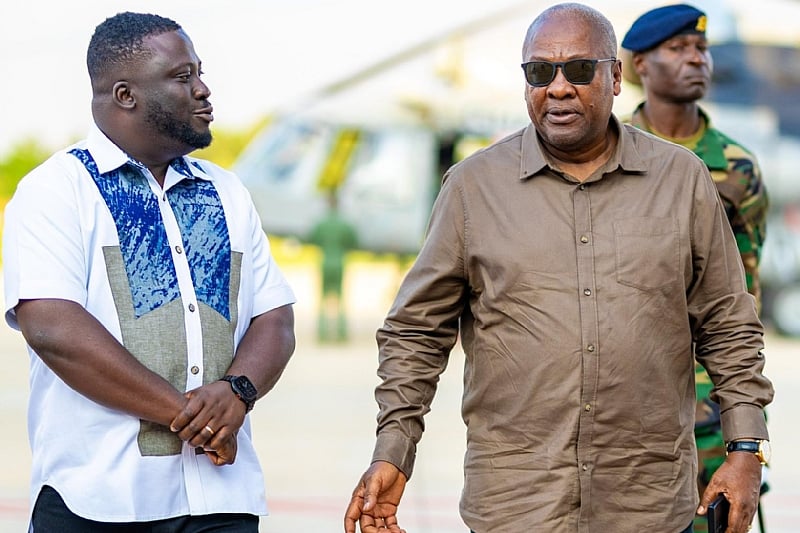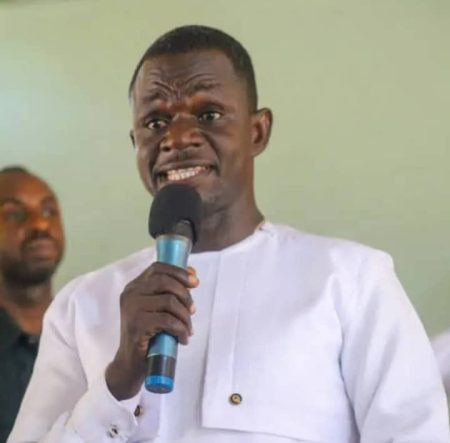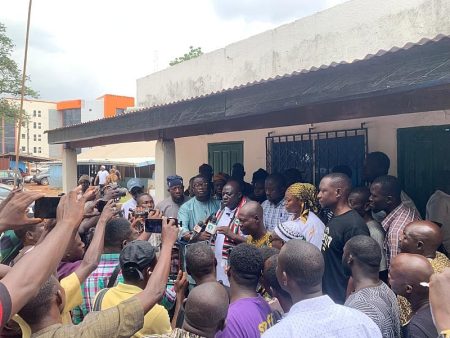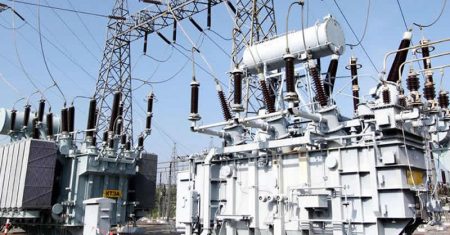The fight against illegal mining, or “galamsey,” in Ghana is facing a critical juncture, hampered by fragmented and uncoordinated efforts that undermine its effectiveness. Dr. Frank Amoakohene, the Ashanti Regional Minister, has voiced strong concerns about the current approach, arguing for a singular, comprehensive national strategy to combat this destructive practice. He criticizes the existence of multiple, independent task forces operating under different authorities, including the National Anti-Galamsey Taskforce (NAIMOS) under the Lands Ministry and a separate team under the Inspector-General of Police (IGP). This disjointed approach, he argues, creates confusion, weakens the overall impact, and opens avenues for corruption and extortion. He advocates for a unified front involving all stakeholders, eliminating the current fragmented structure and replacing it with a cohesive, collaborative approach.
Dr. Amoakohene’s critique highlights the inherent weaknesses of operating multiple, independent anti-galamsey units. The current system fosters a lack of coordination and communication between different groups, leading to duplicated efforts and potentially conflicting actions. The absence of a central authority coordinating these operations diminishes their overall effectiveness and creates a breeding ground for corruption. Individual task forces, operating without proper oversight and coordination with local authorities, are more susceptible to bribery and extortion. This not only undermines the fight against galamsey but also erodes public trust in state institutions. The decentralized nature of the current system also hinders effective intelligence gathering and sharing, making it difficult to target the most impactful players in the illegal mining network.
The Ashanti Regional Minister’s endorsement of the withdrawal of the IGP’s Anti-Galamsey task force signifies a crucial turning point in the fight against illegal mining. This move, while potentially disruptive in the short term, highlights the need for a fundamental restructuring of the anti-galamsey operations. The current system, characterized by multiple independent units operating without clear coordination, has proven ineffective. It creates confusion, duplicates efforts, and opens the door for corruption. By withdrawing the IGP’s task force, the government acknowledges the need for a fresh start, paving the way for a more unified and effective approach to tackling this complex issue. This restructuring should prioritize establishing a single, well-coordinated national strategy that integrates all stakeholders, ensuring a more consistent and impactful approach.
Dr. Amoakohene’s call for a unified, all-inclusive approach underscores the importance of collaboration and shared responsibility in combating galamsey. He emphasizes the need to bring all stakeholders – government agencies, security services, traditional leaders, and local authorities – under one umbrella, working together towards a common goal. This integrated approach would foster better communication, coordination, and information sharing, leading to more effective strategies and targeted interventions. The involvement of traditional leaders and local authorities is particularly crucial, given their intimate knowledge of the affected communities and their influence within those areas. Their participation can enhance community buy-in and support for anti-galamsey initiatives, making them more sustainable in the long run.
The proposed unified structure would streamline operations and improve accountability. By bringing all anti-galamsey operations under one command, it becomes easier to monitor progress, track resources, and hold individuals accountable for their actions. This centralized approach would minimize the risk of corruption and extortion, ensuring that resources are used effectively and efficiently. Furthermore, it would facilitate better coordination with international partners and organizations, allowing Ghana to leverage global expertise and resources in the fight against galamsey. A unified command structure would also simplify the process of information gathering and analysis, allowing for more targeted and effective interventions against illegal mining operations.
The urgency of addressing the galamsey problem cannot be overstated. The environmental destruction caused by this illegal activity poses a significant threat to Ghana’s water bodies, forests, and biodiversity. The long-term consequences of unchecked galamsey include water shortages, land degradation, and health problems, impacting the livelihood and well-being of millions of Ghanaians. Therefore, a swift and decisive shift towards a unified, well-coordinated national strategy is crucial. This strategy must be backed by strong political will, adequate resources, and a commitment to transparency and accountability. Only then can Ghana hope to effectively combat galamsey and protect its natural heritage for future generations.














